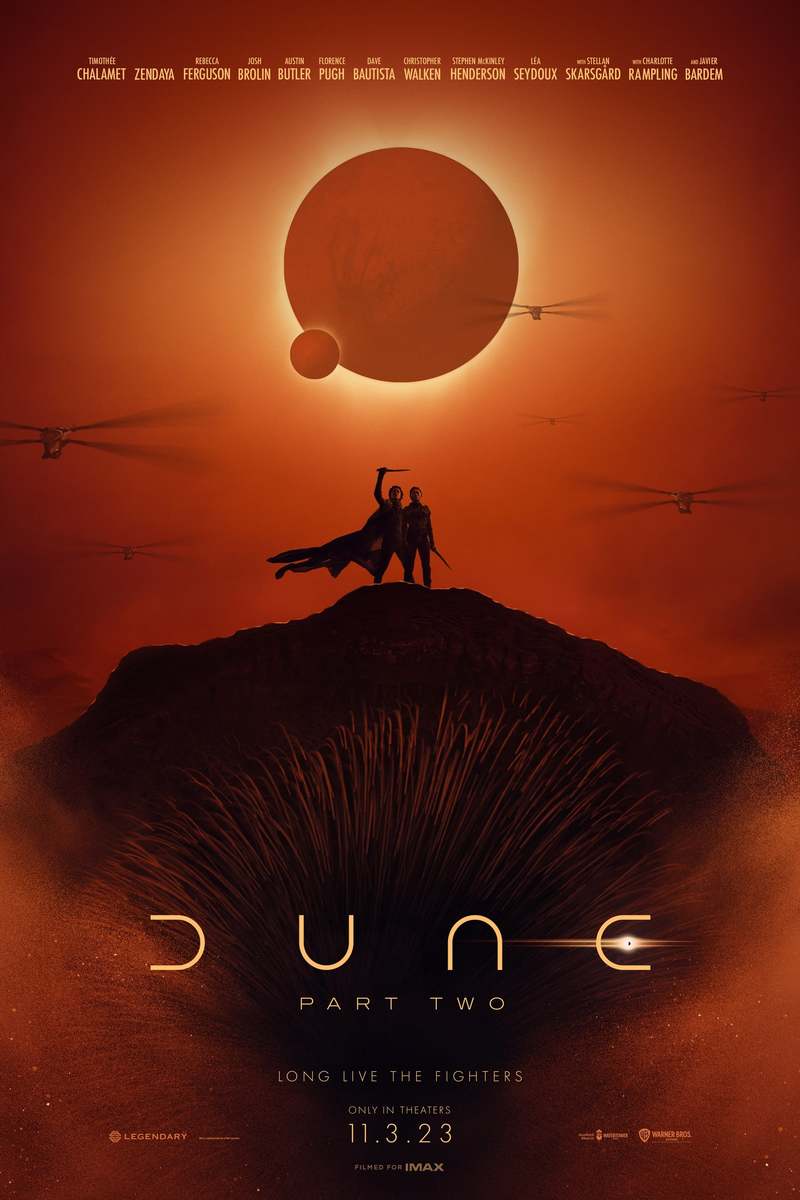On March 1. “Dune: Part Two” was released in theaters and garnered acclaimed reviews from critics nationwide. As I sat in the dark theater waiting for the movie to begin, I was taken aback at the abrupt beginning and the distorted voice hissing “Power over spice is power over all.” It was a bold statement that set the tone for the entire film. Not only was the movie cinematically beautiful, showcasing the beauty of the desert, but can you really go wrong with Hans Zimmer, Timothee Chalamet, Zendaya, and Florence Pugh? Or the sand piles of political power struggles, religious prophecies, and giant sandworms? I do not think so.
“Dune: Part Two” picks up where the first movie ended. Paul Atreides, who unites with the native Fremen tribe on Arrakis, sets off on a path to avenge his father and lost house. As he struggles between the weight of being the ‘Messiah,’ or the ‘Lisan al Gabib’ and the people he loves, Paul must make difficult choices for the fate of the universe as he journeys to prevent the terrible future that he foresees.
While I can not rave enough about the cinematography, visuals, and music, what I found truly impressive was director Villenuve’s consistent and knowledgeable understanding of the true story of “Dune” which was something that fans have long criticized about previous adaptations. Paul is not a hero. While it takes on a traditional structure of a hero’s conquest “Dune” is not a hero’s tale. The core theme that “Dune” tells is how the loss of humanity is the cost of power as well as the role of propaganda and religious ideals that are interwoven into politics. While that might not sound as fun as your typical action movie, “Dune: Part Two” pulls it off in a way where you can enjoy the action aspect and the deeper themes of Paul’s journey. Villeneuve was, dare I say, quite successful in weaving religious and political aspects into the film where it did not feel forced or too heavy.
While the story of a film is quite integral to the overall film experience, the acting is a big part of it, especially in a story as complex as “Dune.” One of the most show stopping performances in the film was by none other than Austin Butler, who played the role of Feyd-Rautha, the nephew to Baron Harkonnen. I was incredibly shocked to say the least by his transformation as well as his wide range to play such a role. His ability to embrace and go all-in on a role was admirable and impressive to the point where I sat in the theater in shivers.
Overall, while I have no outright criticism of “Dune: Part Two” I can understand why for some people it might lurch too much into the political mechanisms rather than focusing on a simple action-packed, and ‘easy’ movie. However, ‘simple’ is not “Dune” and I strongly believe that while intense and complex, “Dune: Part Two” is a well done and well thought adaptation that all people can enjoy.


